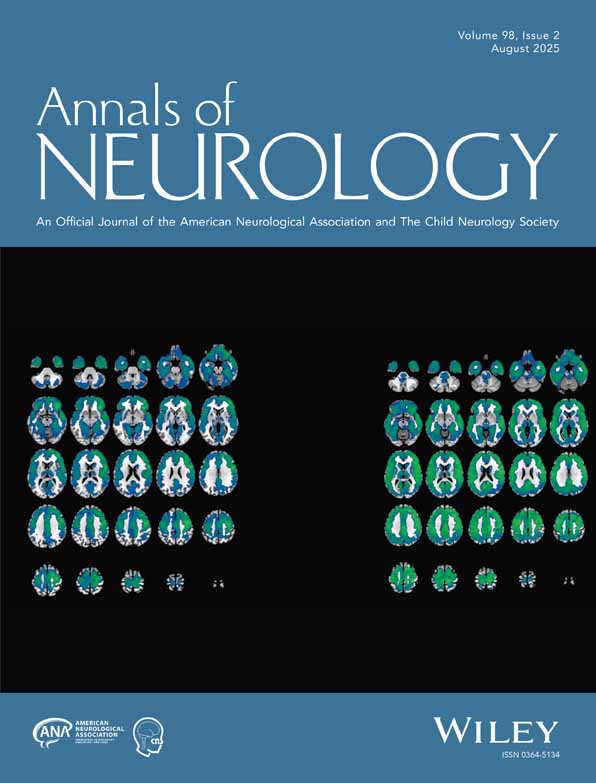Tourette's syndrome: A neurochemical analysis of postmortem cortical brain tissue
Abstract
Postmortem frontal, temporal, and occipital regions of the brain from adult patients who had a diagnosis of Tourette's syndrome were analyzed for neurochemical alterations. In 3 of 4 TS-affected brains, the concentration of adenosine 3′,5′ -monophosphate (cyclic AMP) was reduced in all brain regions evaluated. This diminution in cyclic AMP was not associated with a significant change in the activity of the synthesizing enzyme, adenylate cyclase. No significant differences were identified for the neurotransmitter-synthesizing enzymes choline acetltransferase and glutamate decarboxylase. Concentrations of dopamine, norepinephrine, and the serotonin metabolite 5-hydroxyindoleacetic acid were not altered. Postsynaptic receptor-binding activity for muscarinic cholinergic ([3H] quinuclidiny1 benzilate) and beta receptors ([125I]iodocyanopindolol) showed no generalized impairment. It is suggested that symptoms of Tourette's syndrome might be related to an abnormality within a second messenger system.




